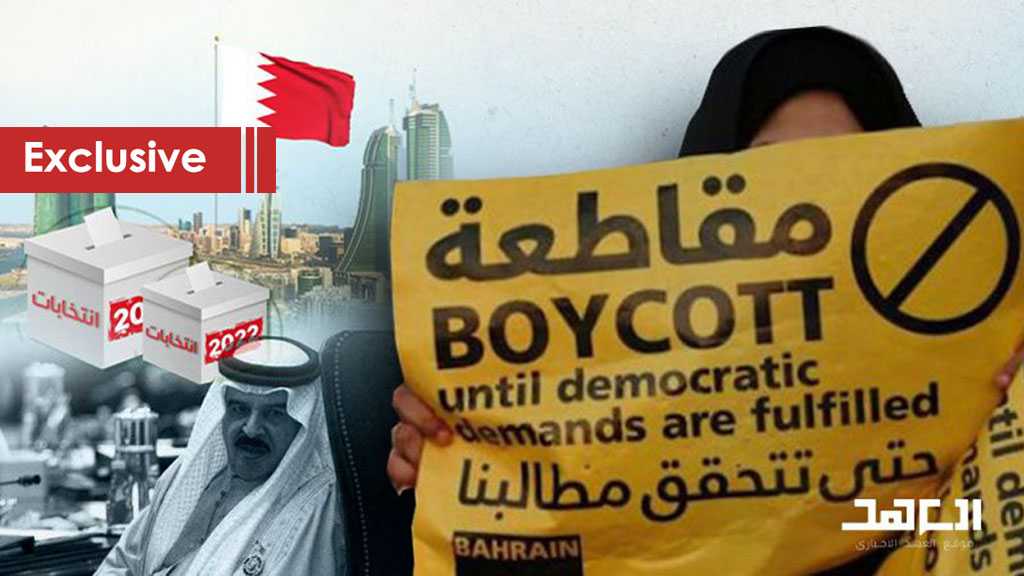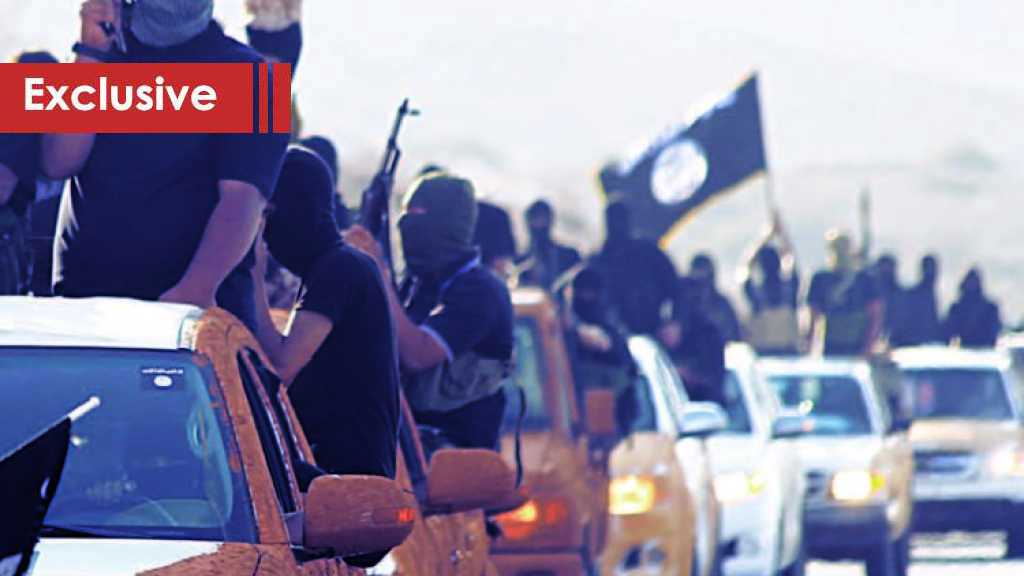
No Popular Pledge of Allegiance to Bahrain’s Hamad and His Elections

By Latifa Al-Husseini
The only party eagerly awaiting the outcome of November’s parliamentary elections in Bahrain is the ruling regime in Manama. They are the only ones that care about the results, which are decided in advance.
A widespread boycott that may outdo the boycott of the 2018 polls is expected. The country’s political opposition has been completely removed from the internal arena. Everyone that remains in the picture only pledges allegiance to the Al-Khalifa clan when it comes to the deterioration of living conditions, rising inflation, and rampant corruption.
The best description of the upcoming elections in Bahrain can be summed up in the following way: the authorities want a restricted referendum on their popularity to showcase to the Western and foreign public.
Diving into the crisis that has been going on since 2011 brings us to a permanent fixture observed by the authorities: the approach to dealing with the ongoing ordeal has not changed. Rather, it has become more complex. There are no reforms; looting of public wealth is prevalent; the king controls the entire state; the government does not represent any segment of society; there is no contractual constitution with the people; and political participation is suspended.
The people of Al-Dira know very well that the king is not concerned with their affairs and conditions. If he had been concerned, he would not have allowed, with his absolute powers, the exacerbation of their already bad situation.
Did he amend the salaries that have been frozen for about 12 years? Did he investigate the fictional pensions of some employees? Did he turn his attention to his and the ruling family’s vast wealth, while the citizens suffer greatly? Did he instruct the House of Representatives to improve people's conditions? What about the 10% tax on goods and services? Who would believe that these people are complaining about poverty and high prices in an oil-producing country whose children are not supposed to think about the rise in prices of goods and expenses on a daily basis?
On the human rights level, one of the questions is whether he retracted the political isolation law? Was he convinced of the importance of political participation and permitting people to express his demands and concerns? Did he authorize freedom of the press? Did he leave room for the unions to be freely active? Has he found a just and humane way to deal with the thousands of detainees and oppressed individuals in prisons?
There is no place in the mind of the king and the officials of the state’s apparatus and his entourage for any attempt to resolve the situation. The preparations for the 2022 elections refute any claim that the aforementioned calamities have been redressed at the national level.
Whoever believes the authorities wish to introduce reforms should take a closer look at what is happening and what are the scenarios that are being planned on the ground. The removal of the names of all the citizens who boycotted the 2018 elections from the voter lists is a clear illustration of the regime’s actions against the Bahraini people.
It is a clear step intended to exclude a certain group in the country. How? The regime wants to cross out every person that boycotted the previous electoral process and knows they will repeat this choice in the November elections. In 2018, it was estimated that 30% of the electorate boycotted the polls.
Approximately 300,000 Bahrainis are eligible to vote. However, in light of those crossed off the list, we are talking about 200,000 voters that state bodies are likely to declare as participants in the elections. But who are they?
A large portion are naturalized citizens. Some are in the military and are forced to vote, and the rest are bought by election cash that is administered directly from the royal court or threatened by the security services.
What happens when the results are announced? Western viewers will have the impression that the turnout of 200,000 voters is high, which means that the people taking part in the elections supported the regime and their figures or deputies. This is how the Al-Khalifa tells the foreign public that they held a "democratic" election, during which the citizens renewed their allegiance.
Games of exclusion and cosmetic demographic changes prevail in Bahrain today. The regime is increasingly reliant on these tactics. After naturalizing thousands and revoking the nationalities of the indigenous population, the authorities drowned in the swamp of normalization.
The regime gave the Jews and the Zionists the Bahraini nationality, enabling them to purchase lands and build settlements in the neighborhoods of the capital Manama that are similar to those in occupied Palestine. These new settlers are taken care of and provided with a good living while the regime suffocates the general public.
The regime works to convince Bahrainis to be satisfied with the crumbs that it offers them – a voucher of up to 25 dinars intended for educational goods.
It longs to hear them talk about its historical honor, such as the humiliation of Masoumeh Abd al-Rahim (a deputy and a vice at the same time) and sees no shame in accumulating more wealth.
Today, the Bahrainis do not need to be convinced of the feasibility of boycotting the elections. Perhaps they walk on the basis that they should not care about the affairs of those who do not care about their affairs.
As long as the intention to change is completely absent among the rulers and the king in particular, neglecting the elections is the most appropriate decision for them.
Those who are scratched off the electoral lists know the hardship of the situation. Because the Shiites represent the majority of them, they realize that excluding this group of positions in the state and military will be met by neglecting the most important thing that concerns the regime, that is, the elections.
There is no acknowledgment of the legitimacy of everything it does, which is completely in line with the five calls of the great national authority, Ayatollah Sheikh Isa Qassem: Participation in them is a service to injustice and what is required is to abstain from the elections and to stay away from what increases the tyranny of the government.
The Great King, then, is waiting for his elections to celebrate the renewal of his unilateral rule without partners or opponents, and the patriotic duty imposes on every free person in the country to boycott them.
As for luring the weak into its abomination, it is a clear betrayal of everyone who made sacrifices, was arrested, expelled, and exiled for the sake of the land and principle as well as a public alignment in the camp of corruption.
Comments



